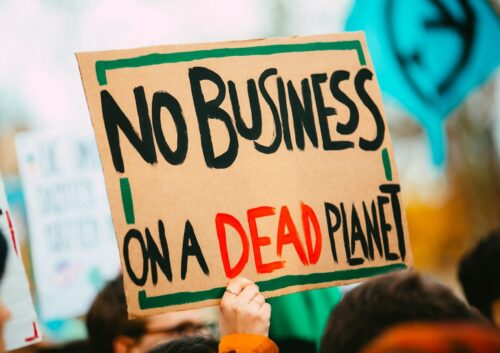
ExxonMobil has decided it’s time to play teacher. In its freshly minted Global Outlook, the U.S. supermajor offered a chapter called “Lessons from Europe”—and the grading isn’t pretty. [emphasis, links added]
The EU’s climate policies, Exxon argues, are a cautionary tale of what happens when governments push through decarbonization with heavy regulation and magical thinking.
The report claims that Europe’s “high-regulation, high-cost” climate crusade has hobbled industry, pushed up energy prices, and weakened public support for the very clean tech needed to hit net-zero goals.
In other words: fail, fail, and fail again.
Chris Birdsall, head of Exxon’s economics and energy division, told reporters the company isn’t saying the transition shouldn’t happen—it’s just saying Europe botched the homework.
“You need to be smart about it,” he quipped, warning that politicians sold the idea that renewables would mean cheaper energy, when in reality the bill was always going to come in high.
Transition periods can stretch 30 years, he noted, and low-carbon still costs a fortune compared to good old hydrocarbons.
Exxon’s CEO Darren Woods has already pressed Washington to use trade talks to push back on new EU directives forcing companies to audit their supply chains for environmental and human-rights risks.
For Exxon, Europe’s climate classroom is a warning to U.S. policymakers not to copy the syllabus.
Predictably, environmental groups aren’t buying the lecture.
Dutch activist shareholder group ‘Follow This’ said Exxon is “blind” to the disruptive potential of clean energy and is simply fighting to preserve its own model.
“With or without climate policy, oil and gas demand will structurally fall,” founder Mark van Baal warned. In other words: Exxon might not be failing Europe, but it could be flunking the future.
Exxon insists it’s being pragmatic: oil and gas will still power the global economy well into 2050, affordability matters to voters, and technology breakthroughs take time.
But the broader narrative is clear—the company wants to turn Europe into a case study of what not to do, even as lawsuits pile up back home accusing it of misleading the public on climate science.
The message is that rushing through the transition without weighing costs can backfire, eroding both industrial competitiveness and public trust.
Read rest at OilPrice.com



















High cost and high regulation for energy companies like ExxonMobil are key to what’s NOT happening in Australia. EM has recently sold the last of its interests in the now diminishing oil and gas fields in Bass Strait, while recently the CEO of Chevron told Autralian media, there will be no more investment by his company in Australia.
For those who may not know, successive Australian governments have considered oil companies to be “bottomless pits of taxable money”. So the deal, when they frist start investing here changes as time goes on and the costs to do business continue to rise, while product sales and prices move according to markets. End result, oil company can’t afford to continue operating particular oil and gas fields, refineries and so on. Blend plants went years ago. I should add, the cost for seismic surveys and test wells are so high, no oil company bothers to apply for permits.
Australia, with a popuation of 27 million, has only two refineries left after all the others have closed or been converted to storage terminals. And, those (remaining) refineries are now receiving government assistance to remain operating. This is yet another demonstration of how stupid politicians and their advising bureaucats have been. The have shot the goose that was laying golden egg.
Around 95% of finished petroleum products are shipped into Australia mainly from Singapore and our reserves would last perhaps two weeks. We have some reserve crude, but that is in the US.
Now – consider this. Imagine how bad it would be in Australia if our main shipping lanes were blocked for some reason. Any ideas as to who might do that?
Perhaps Exxon should follow the oil companies in California are doing by closing refineries–shut down business in Europe. If it is getting too costly to deal with EUs regulations then let those countries figure out how to operate w/o Exxon’s oil and gas.
It is magical thinking. Climate is determined by location, not CO2. Honestly, it’s grade school level science. Climate is about latitude, altitude, and nearby large bodies of water.